
Strengthening AMR data and diagnostics in clinical settings in Africa and Asia
Developing and delivering training to support the Wellcome ACORN project
Antimicrobial Resistance (AMR) is undoubtedly one of the most challenging threats to modern medicine and global public health facing researchers and healthcare practitioners today.
At the 79th United Nations General Assembly (UNGA) in 2024, the World Health Organisation (WHO), called for global leaders to work together to reduce “the estimated 4.95 million human deaths associated with bacterial antimicrobial resistance (AMR) annually by 10% by 2030.” – WHO
This ambitious endeavour is using a One Health approach: “an integrated, unifying approach that aims to sustainably balance and optimise the health of people, animals and ecosystems” – WHO
For this approach to be successful, AMR must be addressed at the community-level, prioritising improvements for populations where the AMR burden is disproportionate to the rest of the world.
In sub-Saharan Africa, nearly 1 in 1,000 deaths are already associated with bacterial antimicrobial resistance, compared to half as many in high-income countries
Wellcome, UK
Accelerating the sequencing of AMR population data, in clinical settings (such as hospitals and healthcare centres), will contribute significantly to achieving our collective 2030 target, and more specifically improving global health for all communities.
‘A Clinically Oriented antimicrobial Resistance Network’ (ACORN) project is one initiative driving action across affected communities in Africa and Asia.
What is ACORN?
A Wellcome-funded collaboration led by the Mahidol-Oxford Tropical Medicine Research Unit (MORU) in Thailand and the Oxford University of Oxford Clinical Research Unit (OUCRU) in Vietnam, this pioneering initiative is driving the implementation of antimicrobial resistance (AMR) surveillance in a clinical healthcare context. It focuses on fifteen hospitals, within nine selected countries across Asia and Africa; enabling a stronger future for outbreak management.
The project also includes the installation of genomics technologies across nine central sites across Asia and Africa, including the installation of genome sequencing-based technologies, to bolster AMR surveillance in those regions, and ultimately improve clinical diagnostics and public health outcomes for their populations.
We were asked by Wellcome to add a sequencing component to ACORN while the project was already underway. We were relatively unprepared for this request, and we were also aware capacity building efforts would be needed – this was why we reached out to Wellcome Connecting Science.
Rogier Van Doorn, ACORN, Vietnam
How does Wellcome Connecting Science play an active role in supporting such research and data acceleration initiatives?
At Connecting Science a fundamental goal for our learning and training programme is to facilitate the advancement of genomics and sequencing technologies, and to contribute towards addressing some of the world’s most pressing global health challenges. We seek to achieve this by leveraging over thirty years of expertise and experience in genomics education development and delivery, to foster positive impacts and self-sustaining scientific communities, particularly in low-resource settings across the globe.
Supporting many different academic and healthcare disciplines to integrate genomics into research or clinical practice, developing workforce capacity is at the heart of our approach.
We specialise in designing and delivering training programmes that blend pedagogical approaches with practical genomics and bioinformatics exercises, to develop course participants into confident practitioners within their respective institutions. In addition to skills-based training focusing on specific tools and technologies, our courses also provide dedicated learning time to actively consider genomics capacity; from end-to-end genomics workflows for sustainable genomics-led projects and studies, through to workforce development.
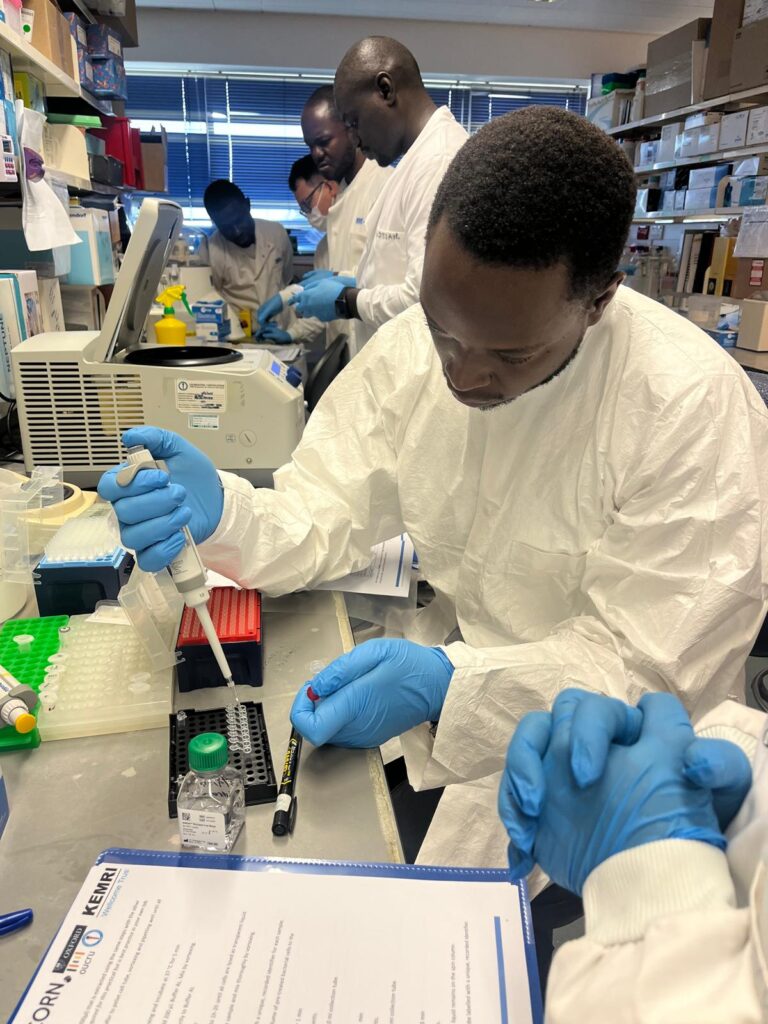
As a Wellcome-funded programme, our expertise in accelerating genomics implementation in low-resource settings is unparalleled. By delivering training that fosters a robust and sustainable education infrastructure, Connecting Science is best positioned to support the critical projects aimed at scaling up the application of genomics for improved global public health. This includes ‘A Clinically Oriented Antimicrobial Resistance Network’ (ACORN).
We immediately approached Connecting Science for training support, since my experience hosting a course in Hanoi, in 2019 with them, meant I knew it was the right thing to do for the project.
Rogier Van Doorn, ACORN, Vietnam
Our team leverages educational expertise, in collaboration with subject matter experts, to design effective courses tailored to meet specific needs. For ACORN, this involved integrating advanced genomics technical knowledge and skills, with a strong focus on capacity building, ensuring participants were equipped with the awareness and tools necessary for implementation and sustainability long after project completion.
Michelle Bishop, Wellcome Connecting Science, UK
How has Connecting Science added value to the initiative?
Working collaboratively with our regional partners, including KEMRI-Wellcome, our training interventions to support ACORN were designed specifically to overcome identified barriers preventing the application of genomics sequencing tools for effective AMR surveillance. Course content and teaching approaches were co-developed to bridge prevailing knowledge gaps and tackle the existing limitations around workforce capacity.
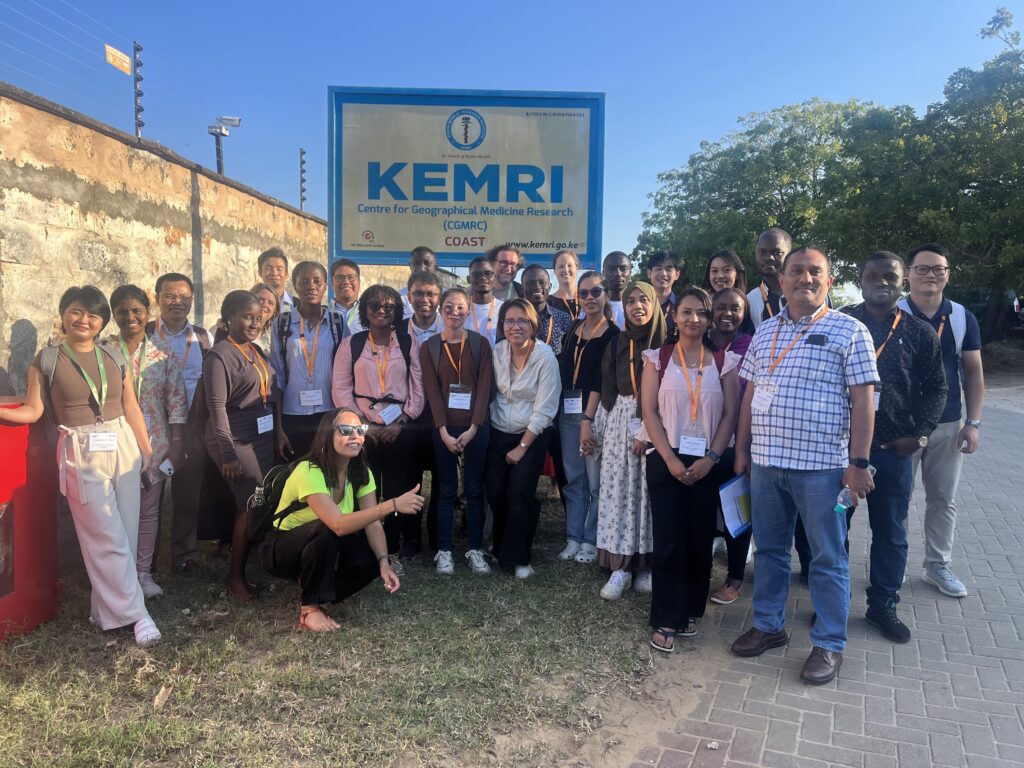
We are building dry- and wet lab capacity for bacterial whole genome sequencing (WGS) for nine sites with a wide range of capacities. Connecting Science’s experience in delivering courses on this topic, to similarly diverse audiences, and doing so in a specifically tailored fashion was extremely attractive to us.
Rogier Van Doorn, ACORN, Vietnam
Our main aim was to develop a framework for training and sustainable capacity building in AMR sequencing and data analysis, tailored to the needs of the clinical communities across the nine sites. Rather than a ‘helicopter science’ approach, where the needs of regional scientists and populations are unconsidered, our courses were specifically developed around the needs and expectations of those the training was designed to serve.
Our ACORN focused training courses
The training consisted of two phases, and was developed specifically for ACORN members. The first phase was a virtual course introducing bioinformatics principles and skills for the analysis and identification of resistance from pathogen genome data.
We worked together to develop both an online and a face-to-face course for staff from the nine sites, which – according to both myself and the participants’ reviews – was very successful. It was the broad experience offered by Connecting Science, and their ability and willingness to tailor to our specific needs, that added huge value that would have been very difficult to find elsewhere.
Rogier Van Doorn, ACORN, Vietnam
Through a series of interactive lectures and online practical sessions, participants learnt best practice approaches for applying bioinformatics tools, using pathogen genomic analysis web-tools, managing genome assembly, and implementing data analysis workflows in the context of outbreak and other epidemiological investigations.
Phase two was an in person training course, ‘Integrated AMR: From Genomic Analysis to Clinical Application’, hosted by our partners KEMRI-Wellcome, in Kilifi, Kenya.
A blend of practical laboratory sessions using next-generation sequencing technologies, as well as hands-on bioinformatics sessions teaching downstream data analysis, were used to build on the existing knowledge and genomic infrastructure developed by ACORN partners and regional hospital networks. The course concluded by asking participants to consider what was needed to implement the end-to-end workflow and how to communicate their findings to varied audiences.
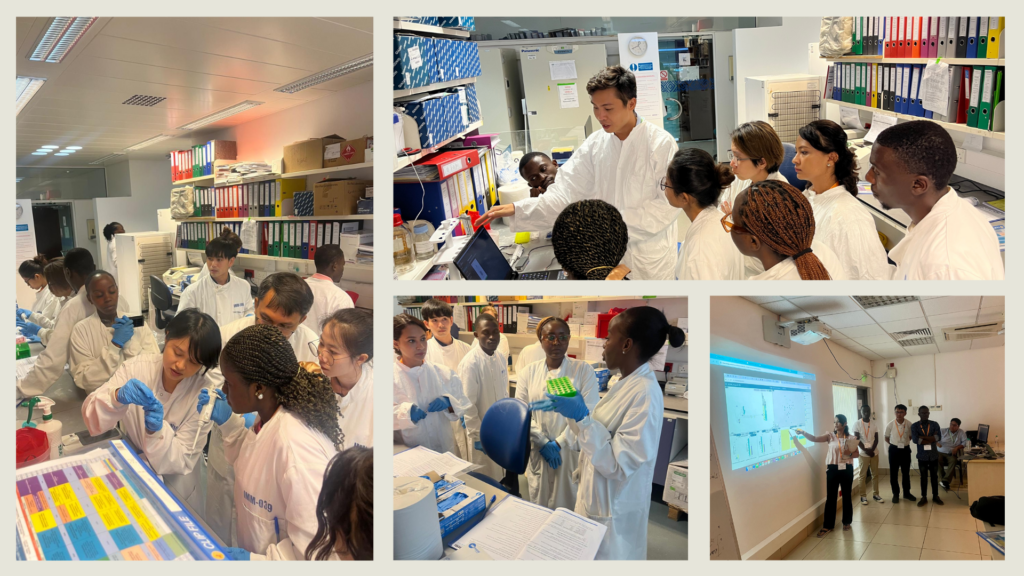
Valuable sponsor representation from Illumina, Oxford Nanopore, and F&S Scientific, meant participants were able to have an open dialogue with the creators of the technologies they were learning to use and apply. This also gave the sponsors opportunities to have detailed and productive discussions around infrastructure challenges and other shared frustrations – an incredible lead nurturing activity.
Impact without borders
Just as we work to map cells in science to gain better insights into disease, at Connecting Science we endeavour to map connections between shared scientific communities, facing similar challenges and bias, to accelerate global impacts.
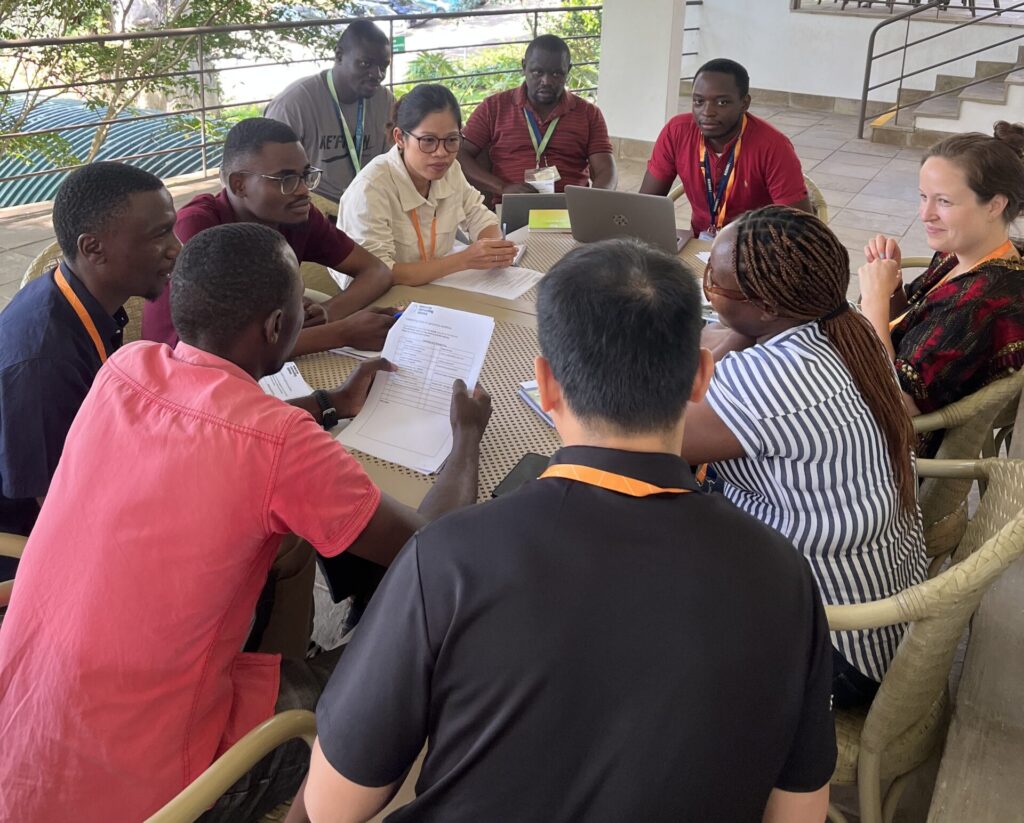
This is why we developed an integrated programme that brought together trainers and participants from across the nine countries in Africa and Asia, for the first time, to learn collaboratively, and form an ACORN genomics community for continued learning beyond our training.
Recognising that while these scientists and clinicians faced similar frustrations, challenges and workforce limitations, we also identified that they were all at different stages of implementation and capacity development. This diversity in experience enriched their collaborative value, enabling a platform to share unique insights and collectively formulate solutions to solve shared problems; building a true foundation for sustainable scientific collaboration.
What our course participants said:
“There’s plenty of very useful tips and tricks, both from wet and dry lab practicals. With my limited Linux experience, I would expect to be struggling in doing the data analysis inside the Linux environment, but surprisingly, I have a good understanding (at least from my point of view) of how it is supposed to be working. The introduction of an array of online tools also exceeds my expectation. The topic of delivering results was so exceptional. Finally, I will cherish all the new connections I made during the training. The training will make a lasting impact for me. Thank you so much!”
*****
“The course was brilliant. It was well-structured, well-organised, and pitched at just the right level. I left feeling inspired.”
*****
Over 85% of participants surveyed said that the skills they had learnt were “Very Useful” to the application of genomics to their work as part of the ACORN project. 100% of participants felt the bioinformatics sessions were “Ideal” for their needs, and over 90% of participants felt the wet-lab practicals were “Ideal” for developing their skills to benefit their work.
“As a beginner, in bioinformatics the materials felt ideal and not very complicated to understand and replicate in future. The provision of online tools and online data visualisation tools was also very useful for beginners.”
*****
“In terms of lab work, I agree that by joining this course we have the chance to exchange and share the problem that we are facing with the instructor and other sites that use the same kit and sequencing approach. This could help us to improve our lab work as well as the part analysis of data.”
*****
“I plan to share the knowledge with our ACORN whole genome sequencing (WGS) teams as well as other colleagues from different institutions who are also conducting WGS analysis on bacteria.”
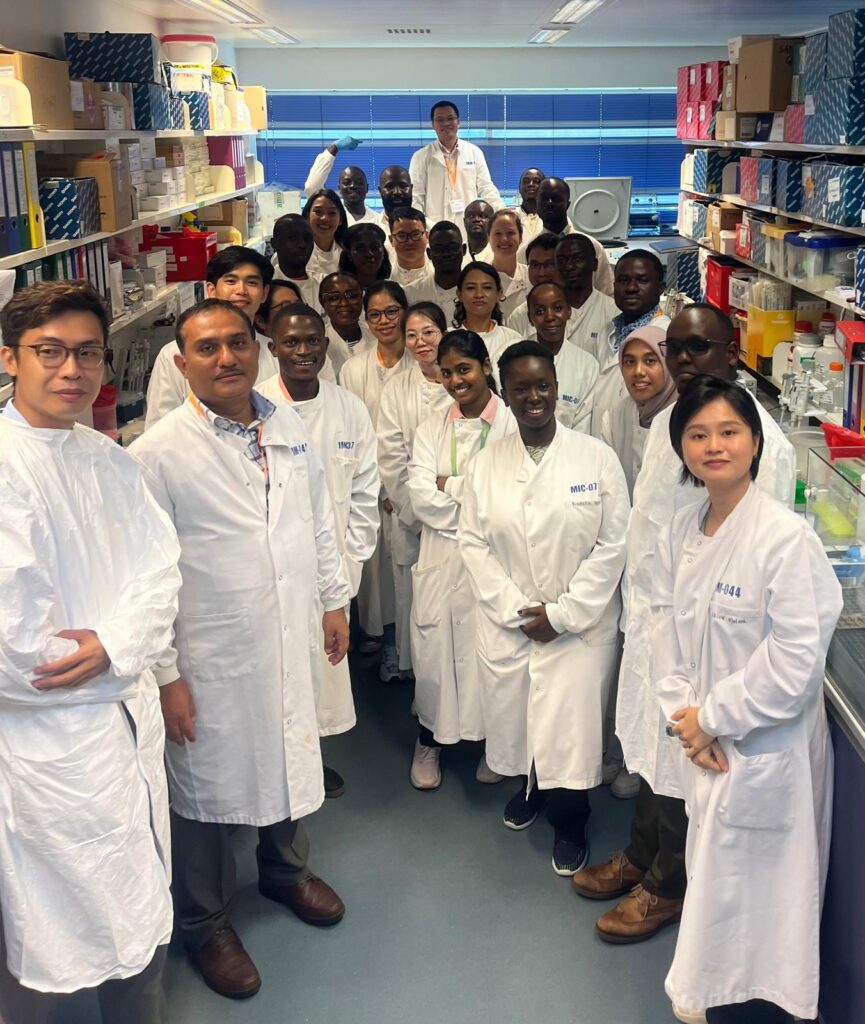
What next?
This commitment to continue to share experiences, learn from one another, and teach others, is critical for raising AMR data standards through the development of consistent and robust laboratory, sequencing, and data analysis practices on the ground.
Already we can see a positive shift in the confidence and skills capacity in those scientists based at the nine project sites. We can also see a community developing through south-south collaborations.
The shared experiences of participants, trainers, and sponsors during this training has provided us with valuable insights about the needs and expectations of scientists working in these regions. Connecting Science remains committed to accelerating genomics implementation to serve local communities, through initiatives such as the Wellcome-ACORN project, and empowering them to sustainably scale up capacity to keep pace with the global era of genomics medicine.
Reading the participants’ evaluations clearly showed we did a good thing. I think there will be future versions of ACORN that will all include genomics, and hopefully this project has helped to lay a strong foundation upon which other projects can build.
Rogier Van Doorn, ACORN, Vietnam
